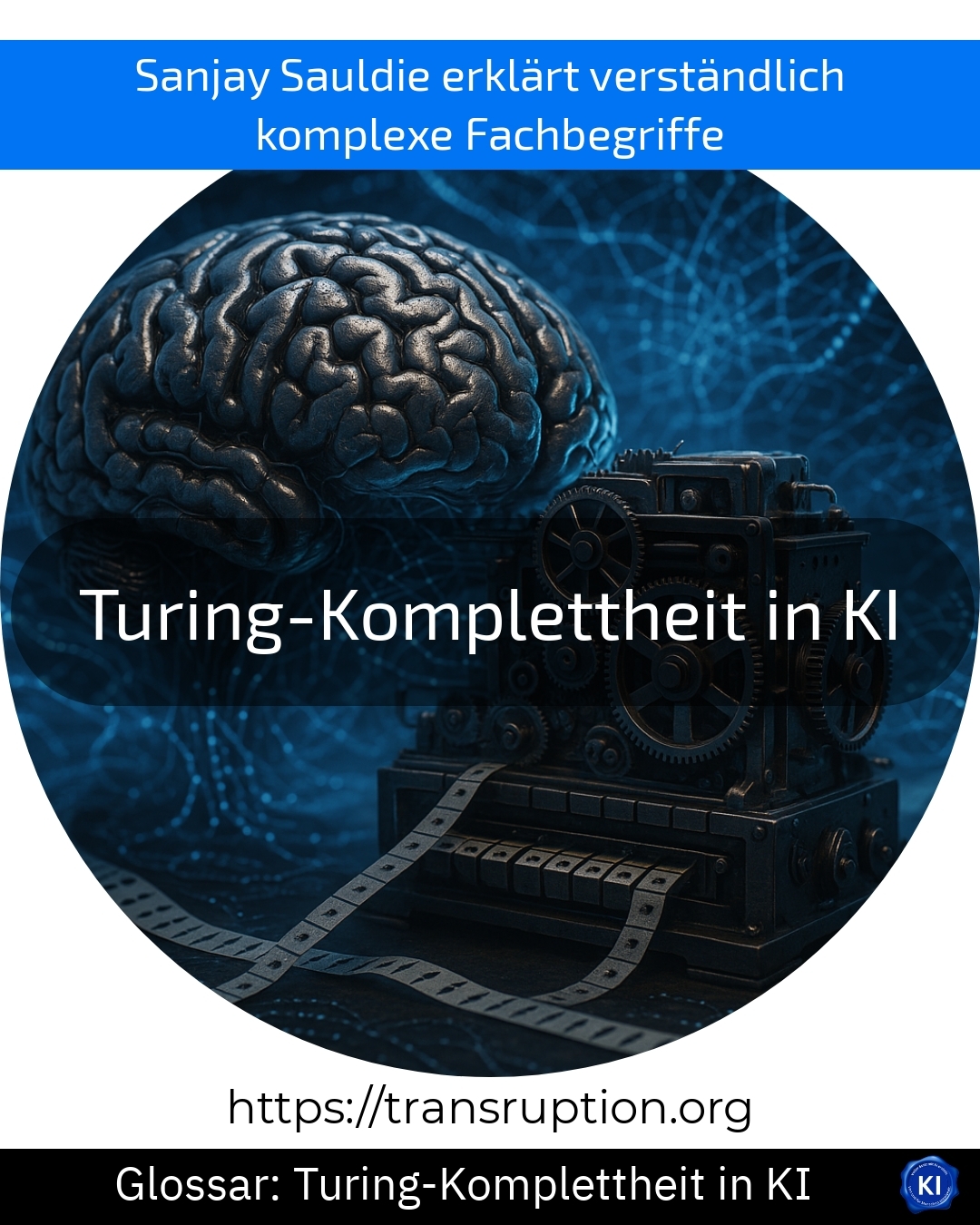The term "Turing completeness" comes from the world of artificial intelligence, automation and digital transformation. It describes how powerful or versatile a computer programme or programming language is.
If something is Turing-complete, this means that given enough time and memory, it can perform any computable task as long as there are clear rules. In other words, there are no limits to what can be calculated as long as the basic framework is correct.
A simple example: Imagine a modern chess programme. It can not only calculate moves, but would - in principle - also be able to write a poem or carry out a financial analysis as long as it is given the necessary instructions. The "construction kit" with which the programme works is so powerful that theoretically any task can be solved.
Turing completeness is crucial in artificial intelligence, as it is the only way to automate complex processes or creative decisions. Turing completeness in AI therefore means that a technology can react more flexibly to new tasks and solve a wide range of problems.















